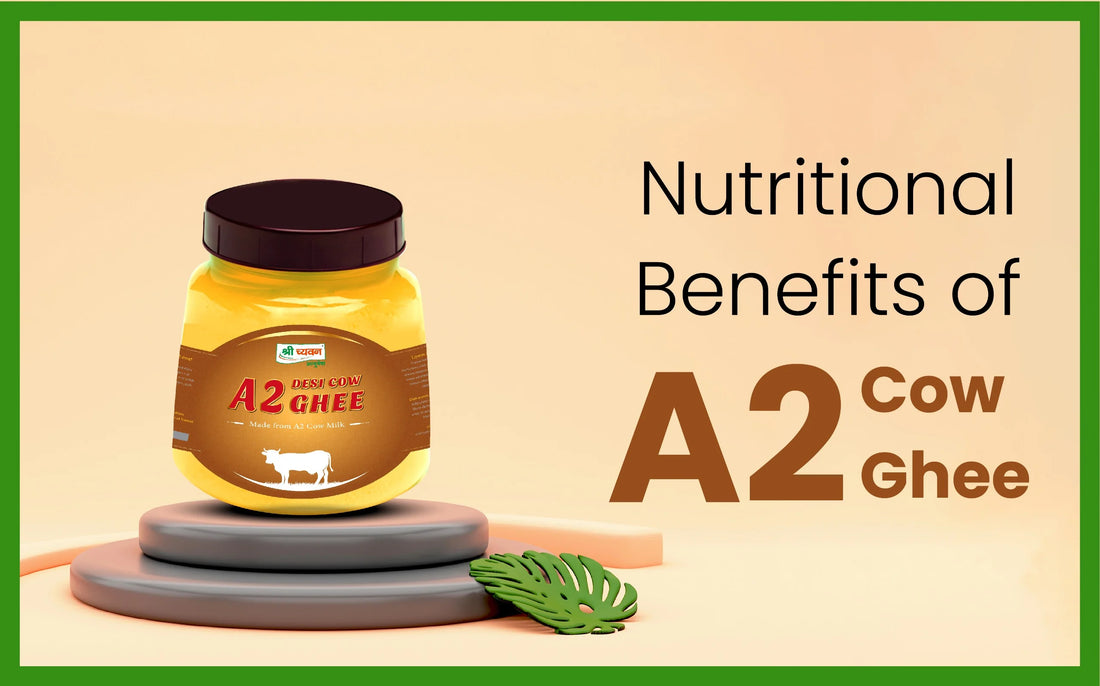A2 cow ghee, a staple in Indian cuisine for centuries, transcends its culinary role to offer a wealth of potential health benefits. This clarified butter, traditionally made from the milk of A2 cows, boasts a unique nutritional profile that has garnered significant interest in recent times. Let's delve into the treasure trove of goodness A2 cow ghee offers.
A Rich Tapestry of Nutrients:
- Healthy Fats: A2 cow ghee is a concentrated source of good fats, including omega-3 and omega-9 fatty acids. These fats play a crucial role in promoting heart health, brain function, and cell health.
- Fat-Soluble Vitamins: A2 ghee is a treasure trove of fat-soluble vitamins A, D, E, and K. Vitamin A is essential for vision and immunity, while vitamin D supports bone health. Vitamin E acts as an antioxidant, and vitamin K plays a vital role in blood clotting.
- Conjugated Linoleic Acid (CLA): A2 ghee boasts a good amount of CLA, a fatty acid linked to weight management, improved body composition, and potentially even cardiovascular health benefits.
- Antioxidants: A2 ghee is rich in antioxidants that help combat free radical damage in the body, potentially reducing the risk of chronic diseases.
Potential Health Benefits:
- Digestive Aid: A2 ghee's lubricating properties may ease digestion and constipation. Additionally, the presence of butyric acid, known for its anti-inflammatory properties, can contribute to a healthy gut environment.
- Immune System Support: The presence of vitamins A, D, and E in A2 ghee can potentially bolster the immune system, making the body more resilient to infections.
- Heart Health: The healthy fat profile of A2 ghee, with its omega-3 and CLA content, may contribute to improved heart health by potentially lowering bad cholesterol (LDL) and raising good cholesterol (HDL).
- Weight Management: While high in fat, A2 ghee may surprisingly aid in weight management. Studies suggest CLA may promote satiety and support a healthy metabolism.

A Nourishing Boon for Skin, Brain, Bones, and Digestion:
- Skin Health: A2 ghee is a good source of vitamin A, which is essential for healthy skin and mucous membranes. Topical application of ghee has also been used in traditional practices to moisturize and soothe dry skin.
- Improved Cognitive Function: The healthy fats and fat-soluble vitamins in A2 ghee may contribute to improved cognitive function and memory. Studies suggest these nutrients may play a role in protecting brain cells and supporting cognitive health.
- Anti-inflammatory Properties: A2 ghee may possess anti-inflammatory properties due to the presence of butyric acid and conjugated linoleic acid (CLA). These properties may be beneficial for those suffering from inflammatory conditions like arthritis.
- Bone Health: Vitamin K, found in A2 ghee, plays a vital role in bone health and metabolism. It helps with calcium absorption and may contribute to stronger bones.
- Lactose Intolerance: A2 milk and ghee, lacking the A1 beta-casein protein, may be tolerated better by those with lactose intolerance. This allows them to enjoy the benefits of dairy without digestive discomfort.
Frequently Asked Questions (FAQ):
- What is the difference between A1 and A2 ghee?
- A1 milk contains a beta-casein protein variant (A1 beta-casein) that some believe can cause digestive discomfort in lactose-intolerant individuals. A2 milk, on the other hand, lacks this specific protein variant and is considered easier to digest. A2 ghee is made from A2 milk.
- How to incorporate A2 ghee into your diet?
- A2 ghee's high smoke point makes it ideal for high-heat cooking like sauteing and stir-frying. You can also drizzle it over vegetables, rice, or dals for a nutty flavor boost.
- Are there any side effects of A2 ghee?
- While generally safe, A2 ghee should be consumed in moderation, especially for those with specific health conditions.

